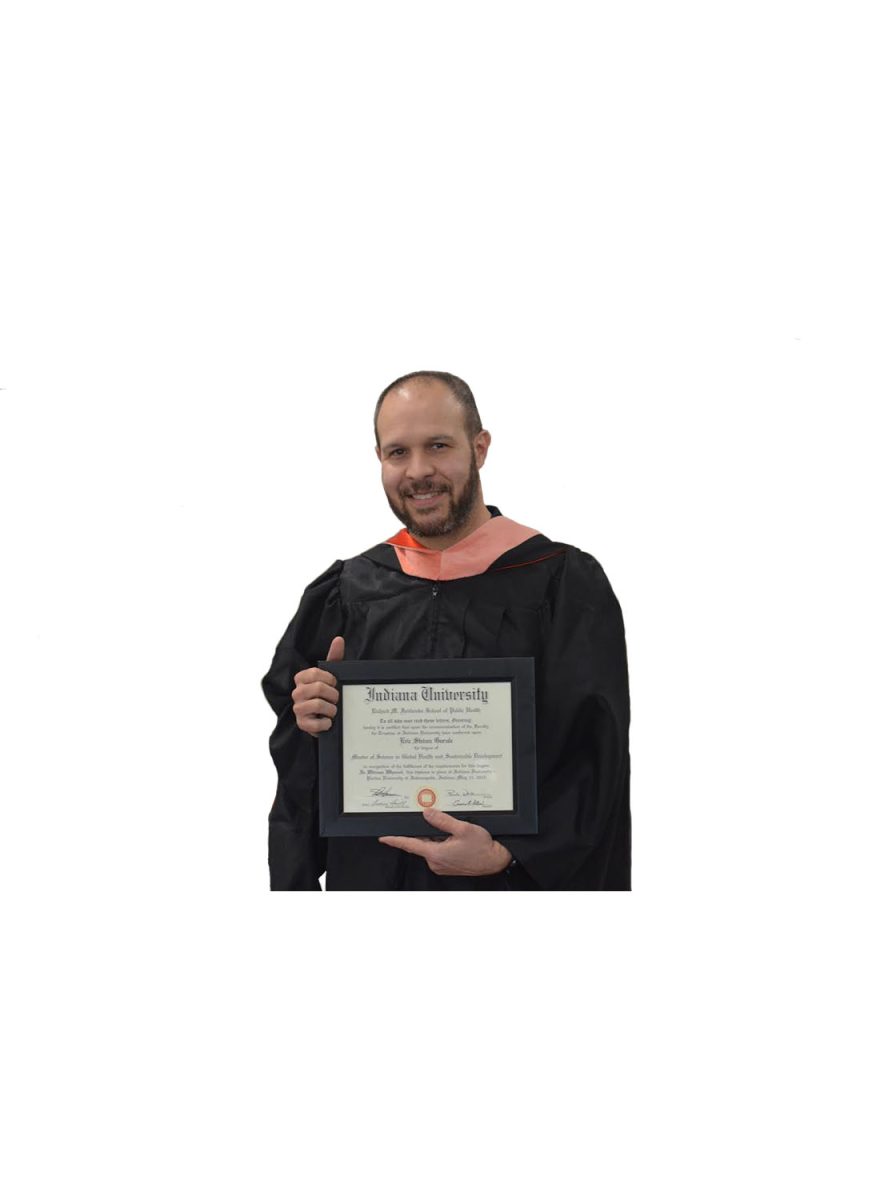Teachers devote countless hours to improving their students’ education. Time after school grading and providing feedback, coming in early and leaving late to tutor students, and spending weekends developing lesson plans to engage students are only a portion of the work teachers do. Some teachers are also students themselves in post-undergraduate studies to perfect their work in the classroom. But current economic conditions have some educators considering the risks and rewards of pursuing an advanced degree.
According to the Indiana Education Employment Relations Board, graduating from a master’s or graduate program can allow a teacher to receive a raise, partially funded by the state as part of their yearly evaluation. The state establishes criteria for those raises in areas like content knowledge, which an advanced degree can help fulfill.
However, according to the US Census Bureau, teachers, even with higher degrees, consistently get paid less than similarly educated full time salary workers, and this discrepancy has pushed many teachers to question the worth of a graduate degree.
According to AP environmental science teacher Eric Gurule, who earned his masters in global health and sustainable development, getting an advanced degree wasn’t remotely lucrative up until a couple of years ago.
“The reason I didn’t get my master’s earlier was because the raise was around 1,000 dollars per year” Gurule said. “Recently, it changed to about 7,000 dollars a year. It wasn’t worth it before, given my expenses.”
AP Language and Composition teacher John McKinney, who earned his masters degree in educational leadership at Purdue University, has been able to reap the benefits over the years, making his degree advantageous to him.
“For me, the master’s was definitely worth it because it does tilt the pay scale. It’s just an investment, and if you’re teaching long enough, it’s worth it,” McKinney said.
According to the Indiana Education Employment Relations Board, in 2019-2020 fewer than half of the school districts in Hamilton County had a starting pay of at least $40,000. However, the MIT living wage calculator states that a living wage in Hamilton County should be $23.90 per hour. Gurule claims that this discrepancy has forced many teachers to supplement their income with outside work.
“A lot of teachers have to work second jobs in their first few years because they don’t get paid very much. Given the cost of living here, you’ll see your math teacher serving in restaurants or working in a Wendy’s,” Gurule said.
“Passion isn’t always enough. You can love something but not have the means to do it; that’s why it’s so important that we support teachers pursuing a master’s or doctorate.” – Junior William Keller
Due to the fact that most teachers´ starting salaries don’t allow for a safety net or allocating a portion of salary to savings,Gurule believes it’s even less likely that a teacher would be inclined to take out more student loans when they’re just starting out. Junior William Keller claims that while teachers with master’s or doctorates are beneficial, he understands teachers’ hesitance to take on more debt.
“I think it really helps [my learning] to have a teacher with a master’s degree. They know the content really deeply, and it’s nice to have a teacher that’s so passionate about their subject,” Keller said. “But I don’t think that there’s enough of a draw to pursue that for teachers, monetarily speaking.”










